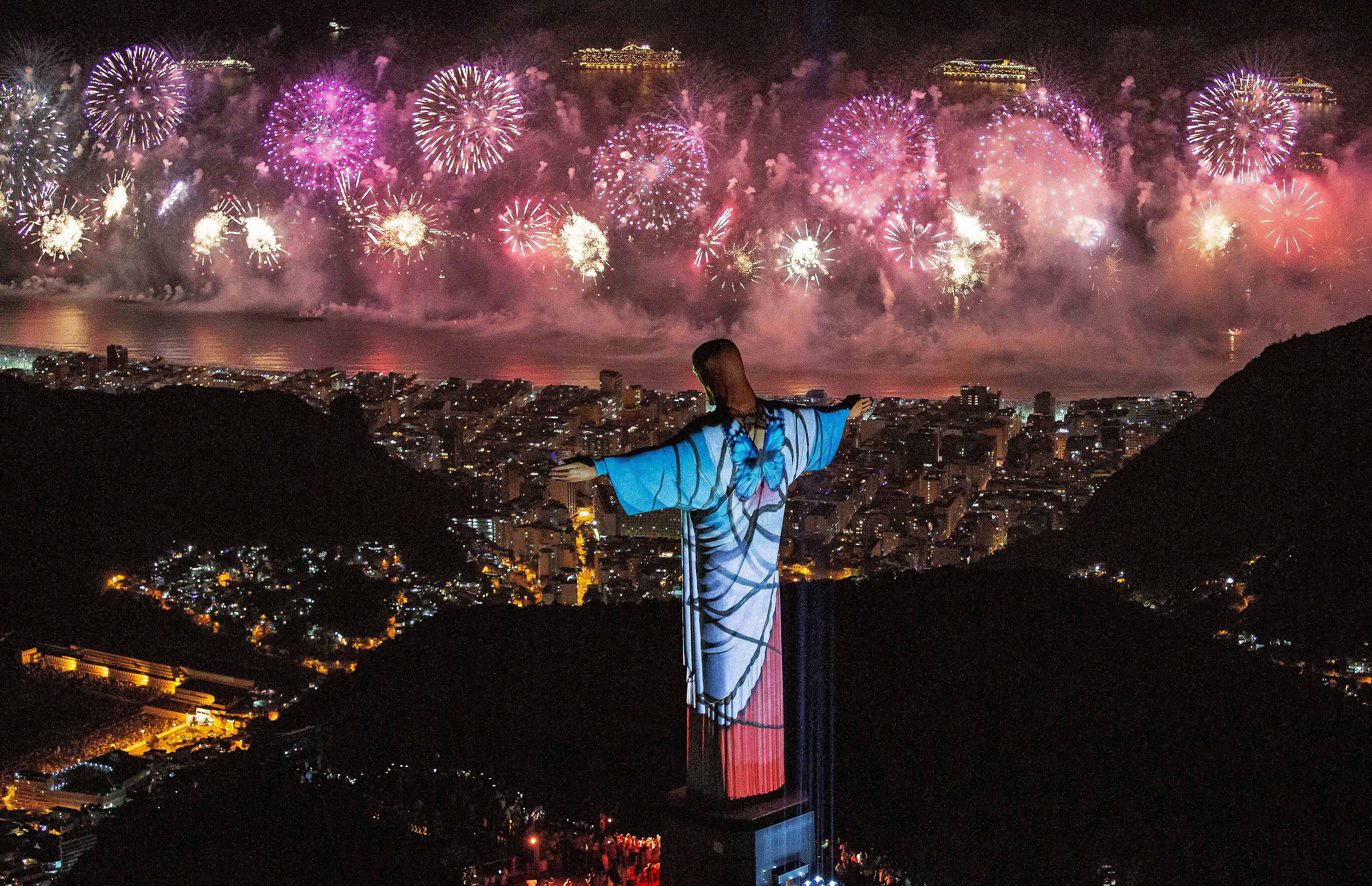Covid: How is New Year’s Eve being marked around the world?
Celebrations will look different after a year in which coronavirus killed an estimated 1.8 million people

Your support helps us to tell the story
From reproductive rights to climate change to Big Tech, The Independent is on the ground when the story is developing. Whether it's investigating the financials of Elon Musk's pro-Trump PAC or producing our latest documentary, 'The A Word', which shines a light on the American women fighting for reproductive rights, we know how important it is to parse out the facts from the messaging.
At such a critical moment in US history, we need reporters on the ground. Your donation allows us to keep sending journalists to speak to both sides of the story.
The Independent is trusted by Americans across the entire political spectrum. And unlike many other quality news outlets, we choose not to lock Americans out of our reporting and analysis with paywalls. We believe quality journalism should be available to everyone, paid for by those who can afford it.
Your support makes all the difference.Cities around the world have cancelled plans to mark New Year’s Eve in the traditional way with the raging Covid pandemic kiboshing mass gatherings and forcing many to celebrate the end of 2020 as they spent much of the year – at home.
From Sydney to Sao Paulo, fireworks displays have been scaled back or suspended entirely and lockdowns are keeping people indoors, with police searching for illicit gatherings rather than patrolling street parties.
After a year in which the virus killed an estimated 1.8 million people, New Year's Eve will take on a more sombre tone as people around the world look towards 2021.
London's New Year's Eve fireworks – which normally attract 100,000 people – were cancelled in September, to be replaced by what the mayor’s office called a BBC “special broadcast to remember 2020 and look forward to 2021”.
In Edinburgh, the Hogmanay celebrations have been swapped for a three-part film which will feature a drone show while the castle has been illuminated with a light display dedicated to NHS staff and key workers.
Elsewhere, Germany has banned the sale of fireworks, which residents usually set off in on the streets, and a pyrotechnics show at Berlin's Brandenburg Gate is off.
The Netherlands moved the national countdown from an Amsterdam park to a football stadium, where spectators won't be allowed in and pyrotechnics will be replaced with "electric fireworks”.
Fireworks displays have also been canceled at the Arc de Triomphe in Paris while in Spain, the traditional San Silvestre Vallecana fun run which takes place in Madrid on New Year's Eve has been transformed into a virtual race.
The Spanish capital’s main square, Puerta del Sol, will close from 10pm on the 31 December to prevent crowds gathering.
In Rome, the fireworks are still on, but concerts in public plazas have been scrapped in favour of live streamed performances and art installations.
Pope Francis will also skip his typical 31 December visit to the Vatican's life-sized Nativity scene in St Peter's Square and plans to deliver his New Year's Day sermon indoors, to prevent crowds from gathering.
Poland has told residents not to circulate between 7pm on 31 December until 6am on 1 January.
Turkey declared a four-day lockdown starting on New Year's Eve, and President Recep Tayyip Erdogan warned that security forces will inspect hotels for banned parties.
In Russia, public events have been banned or restricted in many regions but the country's so-called New Year's Eve capital, the city of Kaluga, is encouraging tourists to celebrate with a week of festivities, despite pleas from residents to cancel.
Major Brazilian cities including Rio de Janeiro and Sao Paulo have scrapped fireworks, open-air concerts and rooftop parties.
The main pyrotechnic displays in Hong Kong and Singapore are not going ahead either, but Auckland and Sydney, among the first cities to ring in the new year, are pressing ahead with their fireworks.
Plans to allow thousands of frontline workers to watch Australia’s flagship display up close have been scrapped, however, and most tourists will be barred from entering Sydney’s central business district.
In New York, the annual Times Square Ball Drop will be going ahead, but the usual large crowds will be replaced by first responders and essential workers who will watch from a private, well-spaced area.

Join our commenting forum
Join thought-provoking conversations, follow other Independent readers and see their replies
Comments